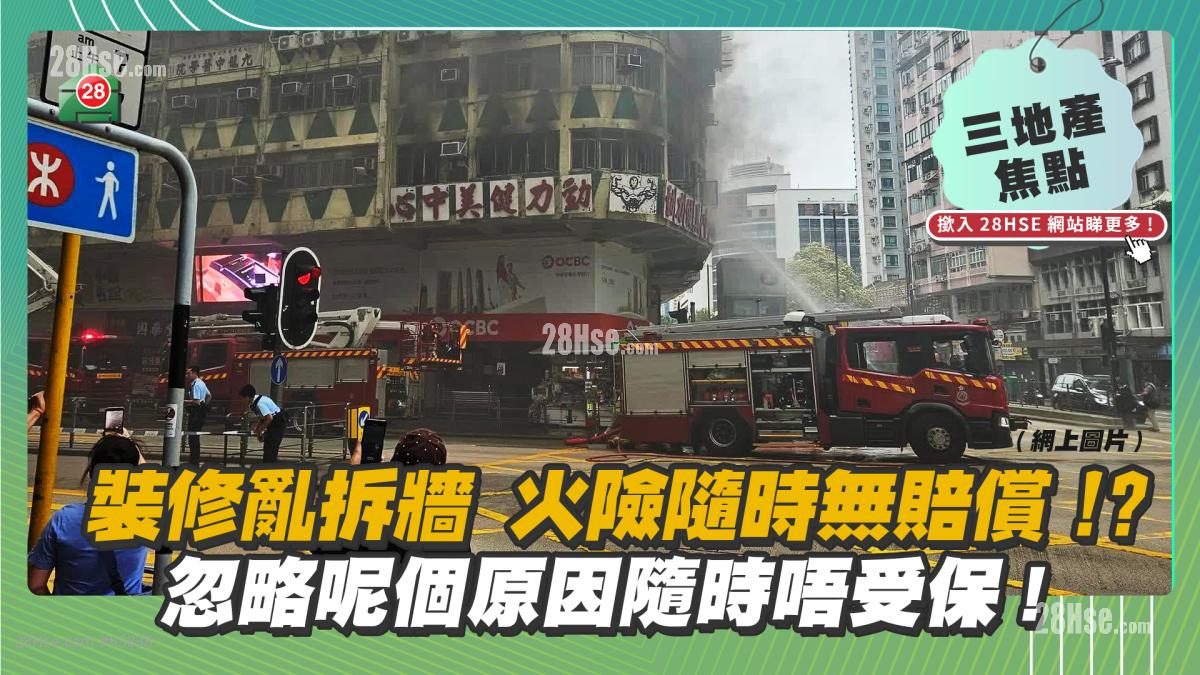Recently, Hong Kong has witnessed several fire incidents, including a number three fire at the 60-year-old New Lucky House in Jordan, densely populated with subdivided flats. This tragic event resulted in five deaths and numerous injuries, leaving many residents homeless. Fires can occur unexpectedly, prompting many to purchase fire insurance. But what exactly does this insurance cover?
Fire insurance is essentially "building structure insurance," which covers the walls, floors, ceiling tiles, doors, windows, pipes, and any renovations present at the time of property purchase. This type of insurance protects against losses caused by water damage, fire, typhoons, and other accidents, compensating for the costs of repairing or even rebuilding the damaged structure.
It is important to note that fire insurance and home insurance are distinctly different products, offering coverage for different aspects. Fire insurance covers the building structure, whereas home insurance protects household belongings such as furniture, home appliances, and valuable personal items.
Is it mandatory to purchase these insurances? Starting with fire insurance, if a property owner needs a mortgage to purchase a property, banks will require the owner to obtain fire insurance. However, it is not necessary to purchase the insurance directly from the mortgage-providing bank; an insurance policy from any company can reduce the bank's risk.
As one of the conditions for granting a mortgage loan, the fire insurance policy must remain active until the loan is fully repaid. Once the mortgage is settled, homeowners can decide whether or not to continue with fire insurance based on their needs.
It's worth noting that if the property management company or the Owners' Corporation has already purchased collective fire insurance for the building, covering all residents and common areas, individual homeowners might not need to purchase additional fire insurance to satisfy mortgage approval requirements.
However, purchasing fire insurance does not mean permanent coverage. Many policies specify that if any structural modifications to the unit violate the Buildings Ordinance—such as converting a traditional kitchen to an open kitchen without approval, or illegally combining units—the insurance company has the right to terminate the fire insurance for that unit. In such cases, the homeowner will not receive any compensation in the event of an accident.
Regarding home insurance, it is not compulsory; owners or tenants can decide based on their specific needs. Similarly, if there are unauthorised modifications in the unit, the insurance company may terminate the policy regardless of whether the loss is related to these changes.
How is the premium calculated? It generally depends on the unit's size (larger units incur higher premiums), the building's age (older buildings come with higher premiums), and the scope of coverage (more comprehensive coverage leads to higher premiums). Various insurance plans are available on the market, each with different terms and coverage. Applicants should thoroughly understand and compare these before choosing a policy that offers both affordability and comprehensive protection.
Like 16

